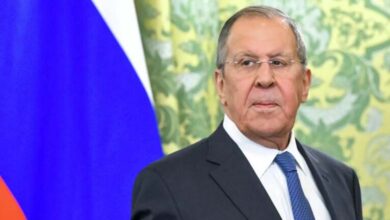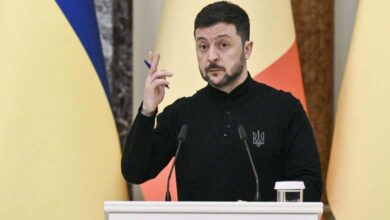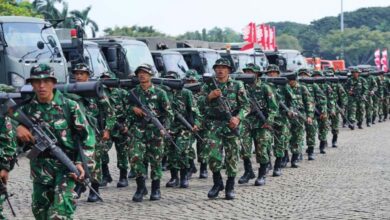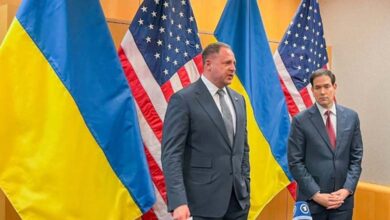Complications of Pending Issues Slow the Normalization of Relations Between Syria and Turkey
Ankara's investment in the political opposition from a military perspective has completely failed.
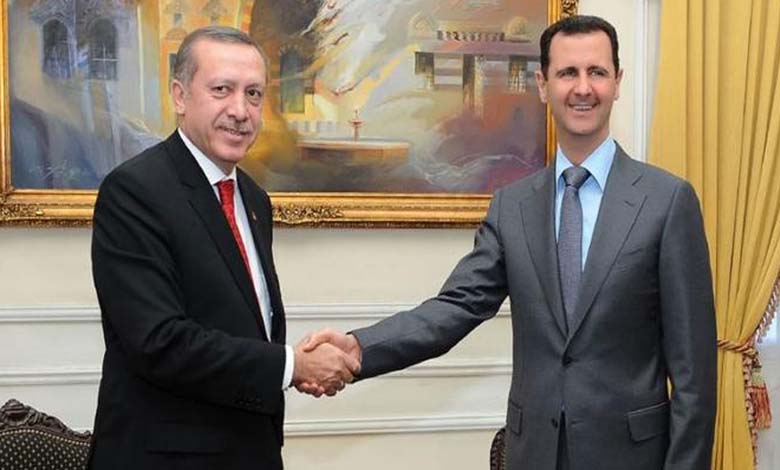
Despite signs of a potentially imminent meeting between Turkish President Recep Tayyip Erdogan and his Syrian counterpart Bashar al-Assad after more than a decade of estrangement, analysts believe that normalization of relations can only happen gradually due to the thorny issues between the two parties.
Mona Yacoubian, Deputy Director of the Middle East and North Africa Center at the U.S. Institute of Peace, told AFP that reconciliation “will not happen overnight, regardless of what happens, even if Erdogan and Assad meet.” She points to “complications” in several pending issues, making it certain that the restoration of relations “will happen at best gradually and in the long term.”
Before the outbreak of the conflict in 2011, Turkey was a key economic and political ally of Syria. Erdogan had a friendship with Assad. However, the relationship turned upside down with the start of protests against the regime. Initially, Ankara called on its ally to implement political reforms, but as the demonstrations were violently suppressed and gradually turned into a bloody conflict, Erdogan called for Assad to step down.
In March 2012, Turkey closed its embassy in Damascus. It provided support to the political opposition before beginning to support armed opposition factions.
Erdogan said earlier this month that he might invite Assad to Turkey “at any time,” after having sent positive signals towards Assad in 2022, and officials from both countries began holding bilateral meetings mediated by Russia.
On Monday, Assad expressed positivity towards Erdogan‘s initiative, but he said the problem is not in holding the meeting itself but in its content.
-
The normalization with al-Assad fuels European disagreements
-
Erdogan’s presidency is primarily in Russia’s interest
Erdogan‘s statements came amidst growing anti-Syrian refugee sentiments in Turkey, which hosts about 3.2 million Syrian refugees, whose fate is a sensitive issue in domestic politics, with Erdogan‘s opponents pledging to repatriate them.
Aaron Stein, president of the Foreign Policy Research Institute based in the United States, said, “Syria and Syrian refugees have become a significant burden on Erdogan.” He believes that “Ankara’s investment in the political opposition, from a military perspective, has completely failed.”
However, Turkey considers that its presence in Syria aims to “eliminate terrorist attacks and threats against its territory and to prevent the creation of a terrorist corridor” near its borders, referring to the Kurdish fighters leading the Syrian Democratic Forces, the military arm of the Kurdish self-administration.
Turkey has launched several military operations inside Syria since 2016, primarily targeting Kurdish units, which it classifies as “terrorists” and considers them an extension of the Kurdistan Workers’ Party (PKK) that has waged an insurgency against it on its soil for decades.
Since 2022, Damascus has stipulated that Turkey withdraw its forces, which, thanks to its military operations, control a wide border strip in the north of the country and wield influence in the northwest, as a prelude to a meeting between Assad and Erdogan.
On Monday, Assad asked, “What is the basis for the meeting? Will it be to cancel or end the reasons for the problem, which is the support of terrorism and the withdrawal (of Turkish forces) from Syrian territories?” He added, “This is the essence of the problem.”
According to Stein, if Erdogan says a meeting with Assad is possible, it may happen. But he also clarifies that “the tango requires two partners, and his partner is a killer he hates,” an expression Erdogan used to describe Assad following the outbreak of the conflict.
Despite the differences, Ankara and Damascus agree on rejecting Kurdish autonomy. While Ankara wants to push them away from its borders, Damascus criticizes their “separatist tendencies” and their support from Washington, after they played a leading role in defeating the Islamic State.
Signs of rapprochement between Damascus and Ankara have raised concerns within the Kurdish administration, which analysts say could bear the brunt, as it wants to maintain the gains it achieved during the war years.
Soner Cagaptay, director of the Turkish Research Program at the Washington Institute, believes that Ankara “wants Assad to eliminate the PKK so that the organization becomes dormant.” He adds, “Then, real normalization will begin in northwestern Syria, with Turkey committing to gradually withdraw its forces.”
This scenario worries millions of Syrians living in the Idlib area and its surroundings, more than half of whom are displaced people who fled gradually from other Syrian provinces as government forces took control.
In a transitional phase, Cagaptay does not rule out Erdogan recognizing Assad‘s authority in northwestern Syria, but with security “remaining in Ankara’s hands,” with the ultimate goal of repatriating Syrian refugees from Turkey.
-
Quartet meets in Moscow to resolve outstanding differences between Ankara and Damascus
-
Turkey – Security Coordination for the Return of Relations between Cairo and Ankara
However, “the difficult part” is that many Syrian civilians do not want to live under Assad‘s rule again and could then become hostile to Turkey.
When signs of rapprochement emerged in 2022, angry protests erupted in several areas in Idlib under the control of Hayat Tahrir al-Sham. Similar, albeit limited, protests occurred this month against the “normalization” between Ankara and Damascus.
In the northeast, Stein sees the American presence as making any Turkish attack authorized by Damascus against the Kurds a challenging option. Therefore, activating the Adana Agreement signed between Turkey and Syria is “the only available tool… as it allows Turkey to conduct operations in Syria up to five kilometers from the border” if its national security is threatened.
-
Meeting between Shoukry and Oglu… a leap towards reconciliation towards “the summit”
-
Syria and Turkey.. Relying on a “friend” on the path of normalizing relations
The agreement ended tension between the two states when it was signed in 1998, with Turkey massing its forces near the border in protest against Damascus’ support for the PKK.
Damascus has long accused Ankara of violating the agreement since the conflict began in 2011. Yacoubian says it remains to be seen if the agreement can be “revised” with the Kurds controlling vast areas.
With the U.S. presidential elections approaching and the possibility of a new administration, Yacoubian does not rule out that progress towards reconciliation could be a “hedge against any potential shift in U.S. policy” towards Syria.





